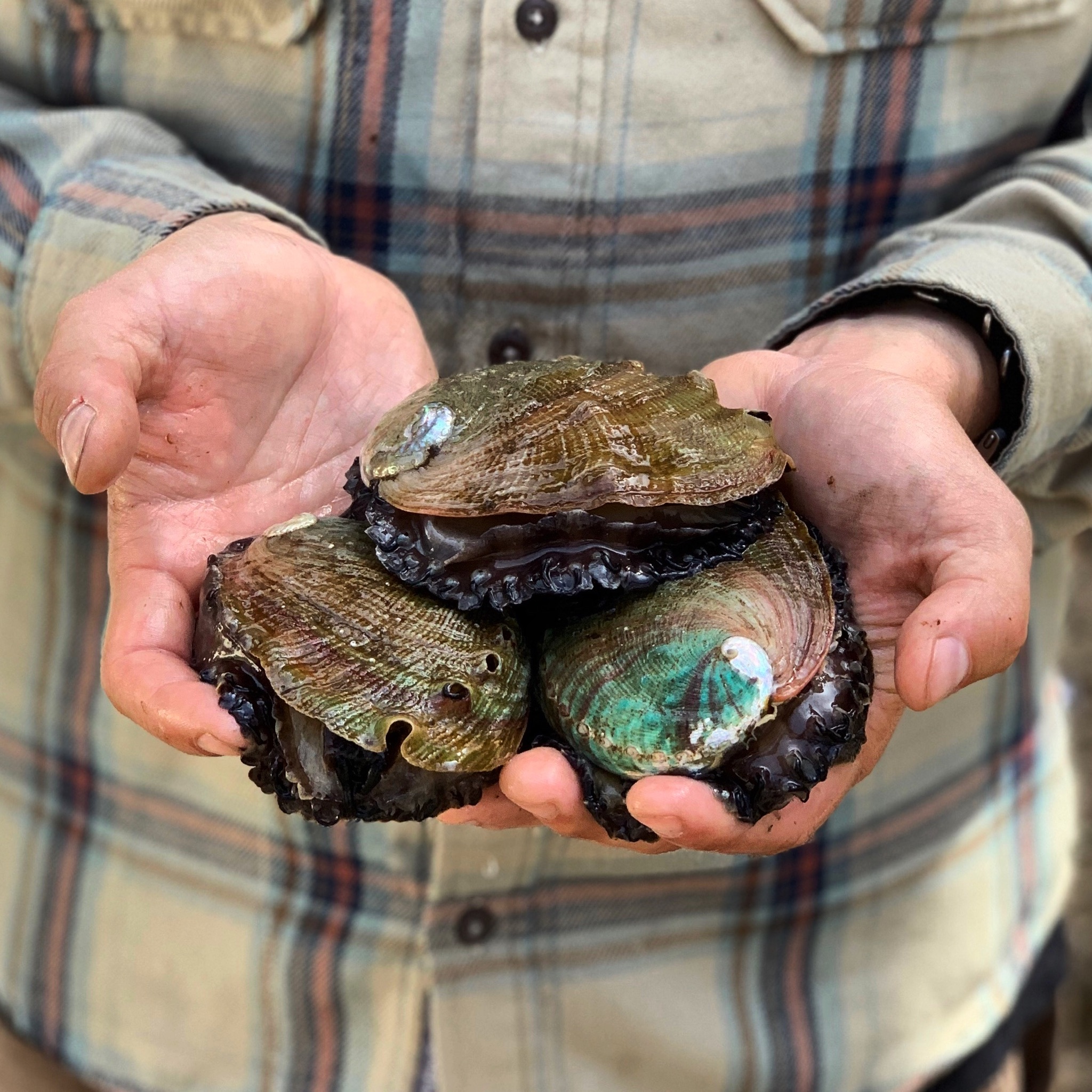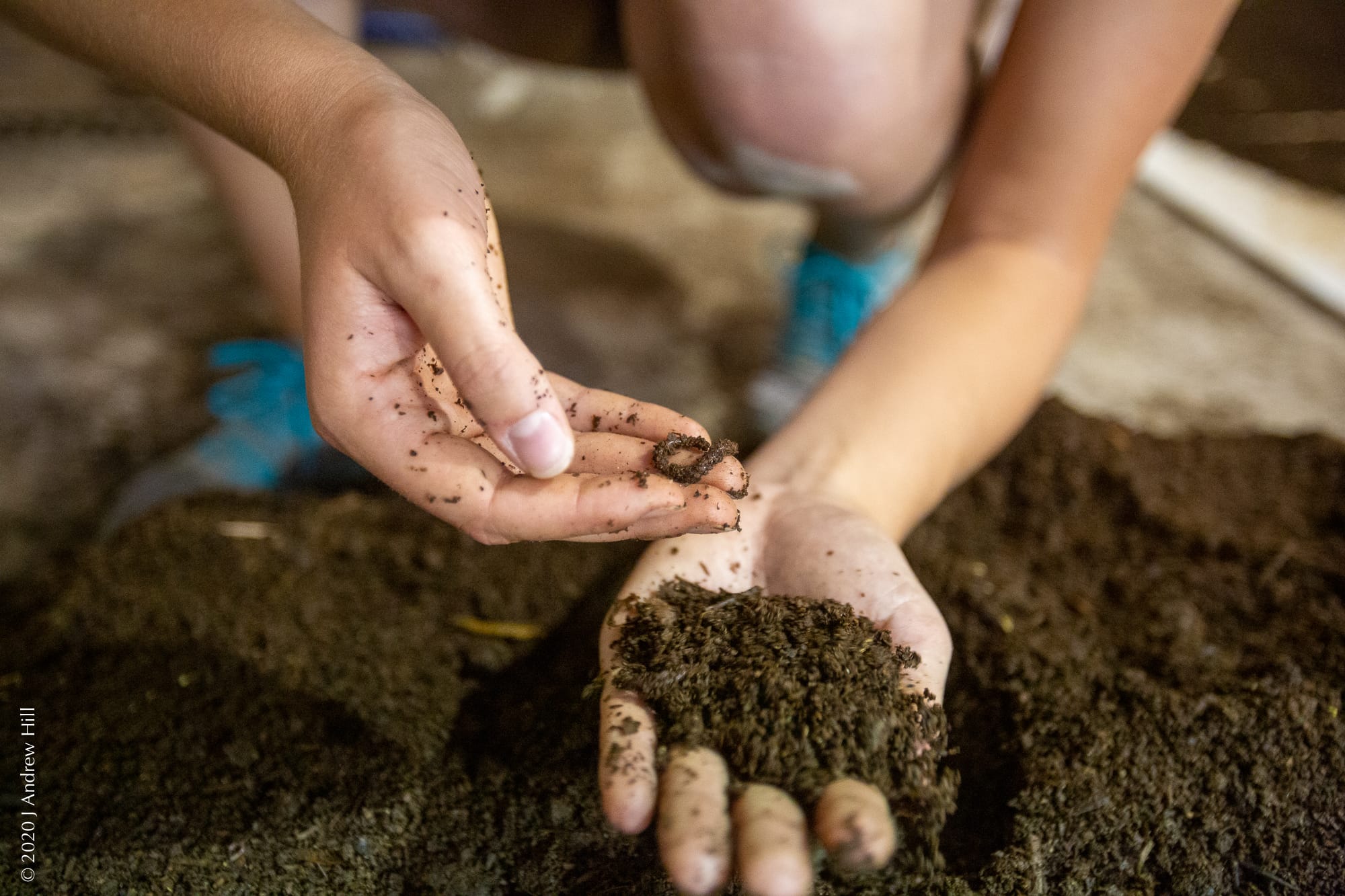On U.S. Route 101 just past the Gaviota Tunnel, as you come over the Nojoqui Grade, your eyes can’t help but focus on the dozens of acres of picturesque farmland and vineyards sweeping across the landscape below. Take a hard right at the bottom of the hill and you’ll find yourself in one of the Gaviota Coast’s most diverse food hubs: Folded Hills Farmstead.
At Folded Hills, there’s something for every locavore: a farm stand stocked with at-peak produce, an adjacent pasture of Kunekune pigs and goats (impatiently) waiting for you to offer them a handful of veggie scraps, a u-pick field bursting with Chandler strawberries in summer and heirloom pumpkins in fall, a winery tasting room featuring Syrah, Grenache, and Viognier varietals, and a lovely terrace to rest, sip, nibble, and enjoy a front-row view of the farm and vineyard where it is all grown.
When the Busch family purchased the property in the early 2000s, their vision was simple: to preserve the land and share the hard work and joys of ranch life with their children and the public. The Farmstead fulfills this vision by serving as a place of connection between people, farmer, food, animals, and nature. As stewards of this land, the Busch’s apply sustainableSustainability: To pursue sustainability is to create and maintain the conditions under which humans and nature can exist in productive harmony to support present and future generations., biodynamicBiodynamic: A holistic, ecological, and ethical approach to farming, gardening, food, and nutrition rooted in the work of philosopher and scientist Dr. Rudolf Steiner., and organicOrganic: Of, relating to, yielding, or involving the use of food produced with the use of feed or fertilizer of plant or animal origin without employment of chemically formulated fertilizers, growth stimulants, antibiotics, or pesticides. practices to preserve and regenerate the landEnvironmental Regeneration: Systems of growing food that reclaim carbon and nutrients on the land by increasing biodiversity, building soil health, and improving watersheds to produce healthier food and lessen the impacts of climate change. for this generation – and the ones that come next.
It is no surprise that animals abound at Folded Hills – owner Andrew Busch grew up caring for hundreds of elephants, elk, horses, bison, and other rescued critters on his family’s farm in St. Louis. On the farmstead, each member of the “farmily” plays an important role and it’s not just entertaining the visitors. Sheep roam the vineyards, providing natural weed management and nutrient-rich manure that organically fertilizes the vines. Kunekune pigs, goats, miniature donkeys, llamas, sheep, and a rescue mini jersey cow roam free on the open hillsides, keeping invasive weeds in check, reducing the risk and intensity of wildfires, and supporting a diverse and healthy ecosystem. Supplemented with food scraps from the farm, the animals are part of the closed-loop systemClosed-Loop System: As opposed to a linear food system that follows consumption of food from field to plate to waste, a closed-loop food system is a more sustainable model that follows food from field to plate to field with little or no waste. that ties each part of the farmstead together.
The diversity of the Folded Hills farmstead is apparent and intentional. Grapes grow alongside the menagerie of animals, 18 acres of organic row crops, and heritage fruit trees of apricots, peaches, apples, pears, persimmons, and olives. By hosting a variety of crops intermingled with grazing animals, each specifically chosen to fit the varying terrain of the land, Folded Hills has grown into a vibrant and mutually beneficial ecosystem for growing food, raising animals, protecting wildlife, and regenerating the land.
Learn more about Folded Hills, order a farm box, and try a new recipe.









